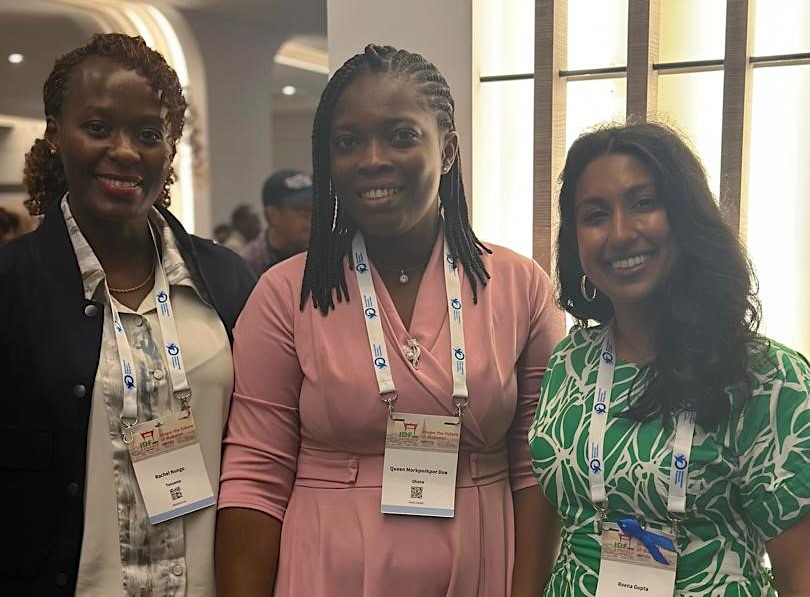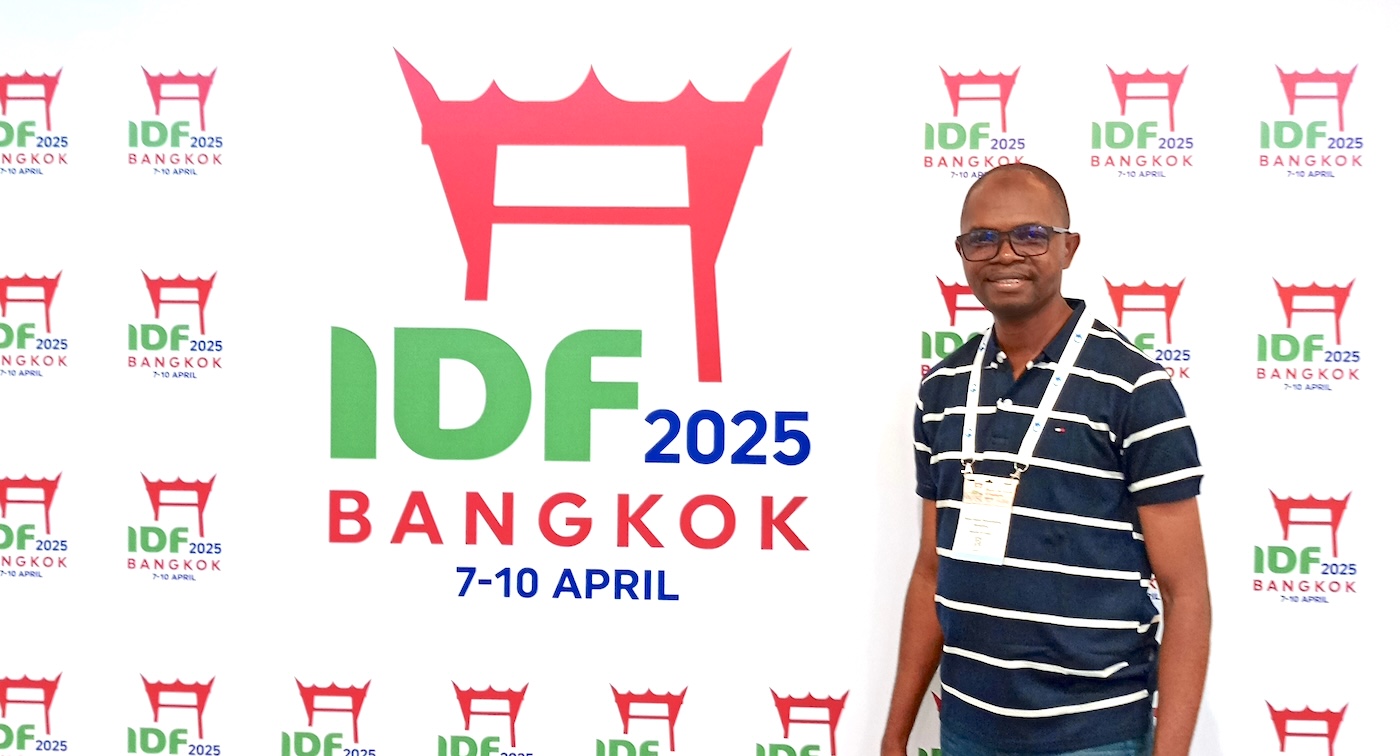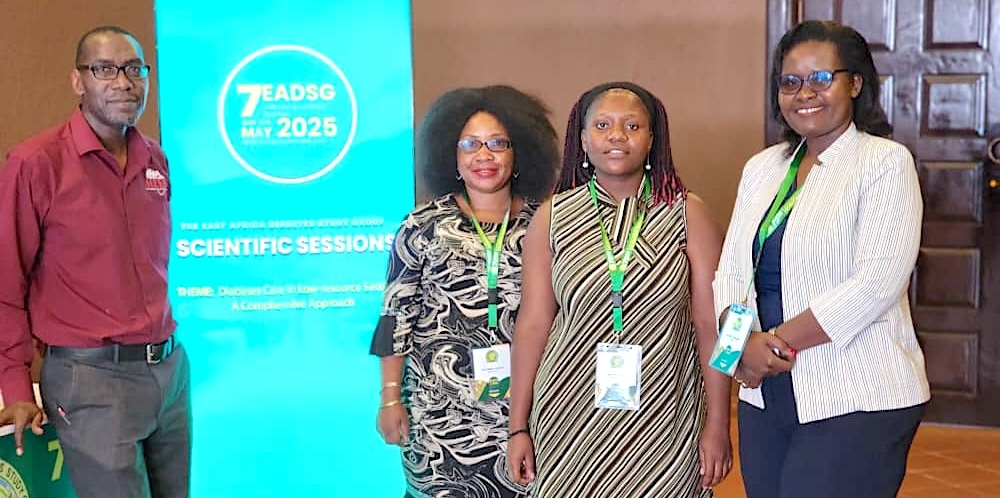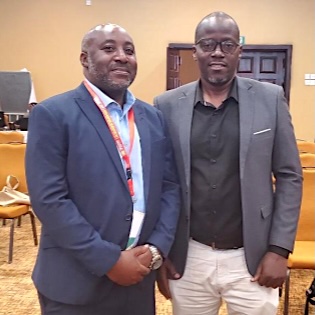

A quiet but powerful moment unfolded at the 2025 World Health Summit in New Delhi when Hari Chandran, a vegetable vendor from Tamil Nadu living with type 1 diabetes (T1D), stood before global health leaders.
Hari shared what it means to manage T1D while working long hours in the informal economy, often without reliable access to insulin, supplies, or care. For many in the room, Hari’s voice broke through the usual conference rhythm, offering a lived reality that is sometimes missing from global conversations.
Speaking directly to global health leaders, Hari’s testimony underscored a vital truth: meaningful progress in T1D care requires centering the voices of people with lived experience. Hari’s words reflect a critical shift across the global health community—one championed by the World Health Organization's Global Coordination Mechanism and The Type 1 Diabetes (T1D) Community Fund—toward solutions shaped by lived experience.
While more voices from low- and middle-income countries (LMICs) are joining global forums, people with lived experience and those working in resource-limited settings remain underrepresented where decisions are made. Without these perspectives, programs risk overlooking local realities, cultural norms, and systemic barriers that determine their success or failure.
The T1D Community Fund, with seed funding from the Helmsley Charitable Trust, is proud to address this gap by investing in community-based organizations in LMICs transforming T1D care. In addition to grant funding, The T1D Community Fund builds global connections and strengthens advocacy capacity for grantee partners through trainings, resources, and travel fellowships.
The 2025 T1D Community Fund travel fellowships kicked off in February in Kigali, Rwanda where all 30 grantee partners participated in the NCD Alliance Global Forum. Since then, nine additional grantee partners have attended various other major global diabetes and NCD convenings, from Copenhagen to New Delhi, with support from the travel fellowship, including:
Through the T1D Community Fund’s travel fellowship program, Panorama is fostering cross-cultural exchanges and creating space for connections. At these global convenings, grantee partners share their expertise and learn from community leaders, clinicians, and researchers across global stages, ensuring that the perspectives of community-based organizations help shape research, policy, and investment priorities.

For Queen Doe from Ark Development Organization, the IDF Congress represented an “invaluable opportunity” to understand the latest advances and challenges in T1D care. As a community health advocate deeply engaged with diabetes education and peer support, she felt inspired by the power of teamwork and peer education, noting, “knowledge is power, and sharing that knowledge is how we empower our community.” Queen’s reflections highlight the importance of collaboration among healthcare providers, patients, and policymakers.

Speaking at the IDF Congress’ Young Leaders in Diabetes training session, Dr. Steve Missambou from Diabaction Congo – Maison Bleue, shared critical insights from sub-Saharan Africa where T1D care is often absent from national health priorities. Dr. Missambou highlighted how support from The T1D Community Fund supports his organization’s diabetic center—the only ambulatory care facility for young people with diabetes in Brazzaville and surrounding areas.
“In a setting where T1D hardly features in healthcare budgets and many live below the poverty threshold, the Fund’s support makes a real difference. It has enabled kidney check-ups, sex education workshops, nutrition counseling, and psychosocial assessments—services that many patients could not otherwise access.”

At the 7th East Africa Diabetes Study Group (EADSG) Congress in Munyoyo, Uganda, several T1D Community Fund grantee partners joined clinicians, researchers, and advocates from across the continent to reimagine diabetes care in low-resource settings.

Miriam Lukwago and Sania Bogere from Kabukye Trust were particularly moved by conversations on equitable access to insulin and diagnostics. Miriam shared, “ideas [learned at the Congress] are already shaping our program design for our upcoming community interventions in Buyende, Luuka, and Kamuli. They remind us that every data point is a person, and every person deserves dignity in care.”
Professor Robert Kalyesubula, President of ACCESS, was invited to present his research, highlighting a cost-effective, scalable model for rural diabetes care using task-shifting and integrated care teams. “Ground-level implementation is possible,” he emphasized, “even in rural settings.”
Dr. Danny Gotto and Nakyomu Florence from Innovations for Development echoed Professor Kalyesubula's optimism while acknowledging the structural challenges that remain—the need to strengthen T1D care at the primary level, improve adolescent transitions, and explore innovative financing to reduce the cost of care.
These reflections remind us, as Queen Doe observed, that “the journey of diabetes care is not one we take alone — it’s a shared path we walk together.”
The T1D Community Fund’s recent Global Call to Action for Advancing T1D Care in LMICs reflects this urgent message: centering lived experience must be a core principle—not only to inform policy but to drive meaningful, equitable change. By investing in community-based organizations and ensuring that people living with T1D have a seat at the table, global health initiatives will drive toward more responsive, sustainable solutions.
As we look ahead to upcoming convenings, including the United Nations Fourth High-Level Meeting on NCDs and the United Nations General Assembly, it’s critical that people living with T1D are not just participants, but leaders in shaping policies and actions.
We invite global health leaders and conveners to join us in advancing this call by creating space for community-driven leadership, investing in local expertise, and ensuring that people most impacted by T1D are at the center of global response.
Get regular updates on our latest projects and open positions through Panorama's Vantage Newsletter.


